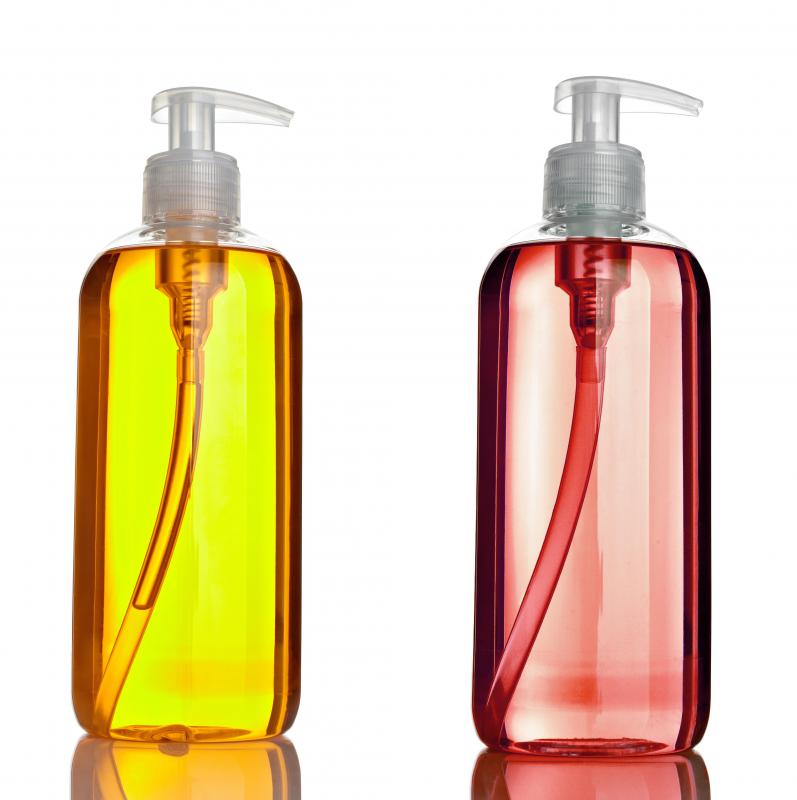At BeautyAnswered, we're committed to delivering accurate, trustworthy information. Our expert-authored content is rigorously fact-checked and sourced from credible authorities. Discover how we uphold the highest standards in providing you with reliable knowledge.
Why is Hand Washing Important?
Hand washing is important because it's the first line of defense against harmful germs that cause people to get sick. Washing the hands keeps germs from spreading from person to person. Germs are spread through a variety of ways if people do not make it a habit of washing their hands.
Washing the hands is an important way to prevent the spread of disease. This practice can combat against the common cold, infectious diarrhea, meningitis, hepatitis A, the flu, and bronchiolitis. People should wash their hands after using the bathroom, before eating and cooking a meal, changing a baby's diaper, taking out the trash, coming in contact with another person's body fluids, and after cleaning the home. They should also wash their hands after touching an animal as well. When a person coughs, sneezes, or blows his nose, he should wash his hands in order to avoid transferring germs to others.

It's also important to wash hands before and after tending to a person who is sick. To be even more vigilant, wash hands before and after simply visiting a sick friend. Don't forget to wash the hands after spending time outside walking the dog, working in the yard, or doing any other outside activity.
It's even important to wash the hands after touching money, since money is handled by numerous people who may not practice good hand washing habits. Germs can linger on pencils, doorknobs, telephones, computer keyboards, and any other objects that people touch on a regular basis. Hand washing is the number one defense against those illness causing microbes that are found in everyone's environment.

Hand washing needs to be done properly in order to be beneficial. For example, hands must be washed in warm water, using soap in order to kill germs. The hands should be lathered for at least 15 to 20 seconds, applying the soap to areas between the fingers and under the nails in addition to the front and back of the hands. These are the places where germs like to hide; therefore, it's important not to neglect them.
Be sure to wash the wrists as well. After thoroughly scrubbing the hands, rinse and dry them with a clean towel. Use a clean paper towel to turn off the faucet.

Children learn the importance of hand washing by watching their parents and caregivers practice this important habit. Parents should teach children the proper way to wash their hands in order to help them avoid sicknesses caused by failure to wash hands properly. By practicing good hand washing habits, people can avoid needless trips to the doctor because of sicknesses that could have been prevented by simply taking a few moments to wash the hands with warm, soapy water.
AS FEATURED ON:
AS FEATURED ON:

















Discussion Comments
@raynbow- The best thing you can do to prevent your hands from becoming dry and chapped is to apply lotion each time you wash them.
Immediately after washing your hands thoroughly, dry them completely with a soft hand towel or paper towels. Next, rub a good moisturizing lotion all over both hands. Repeat this with every hand washing to keep your hands soft and smooth.
If you don't like to use lotion, you can also try using liquid soap that contains moisturizers in it when you wash your hands. However, I have found that this doesn't work as well as applying lotion after washing them because you end up washing off most of the moisturizers when you rinse your hands.
I work around children so I wash my hands a lot to protect them and myself from germs that may lead to illness. However, I find that my hands get very chapped and irritated from the constant hand washing, especially in the winter months. What can I do to prevent this from happening?
Post your comments